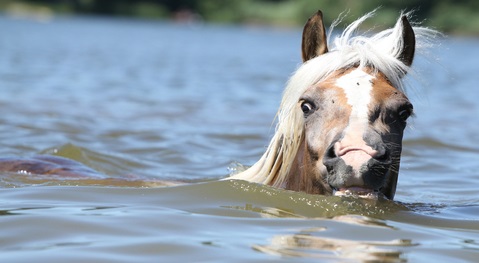



Article by: Hari Yellina
Veterinarian for large animals Shayne Ross never anticipated his job would entail racing the water to evacuate his employer’s surgery, kayaking to consultations, or the emotional toll of attempting to aid so many damaged animals and traumatised farmers in the aftermath of Gympie’s flood last month. “As a direct result of the flooding, many of us here have had to put down a large number of animals, more than we would care to confess. As a result, it has an impact “Dr. Ross explained. On Friday, February 25, when the Mary River began to overflow its banks, the staff at Gympie Veterinary Services was coping with its own emergency: evacuating animals and apparatus before their riverside surgery was flooded.
While staff evacuated roughly 20 animals from their hospital wing and transferred surgical equipment and drugs into shipping crates that were driven to higher ground, other local veterinarians took in emergency situations. On Sunday, February 27, the Mary River reached its highest level since 1893, at 22.8 metres. The team hurried to find new space and now operates out of three locations, as well as their cars, to match the requirements of clients and their animals around the region. “Under extremely difficult circumstances, our whole clinic was on call for about a 14-day period just to try and evaluate and get as many of these animals examined and helped as possible,” Dr Ross added.
“A handful of us even got our consultations by boat and canoe, which was very cool.” “I’ve never arrived at a consult via boat before – the SES was also incredibly helpful, ferrying supplies and equipment across the river.” Hundreds of cattle, sheep, piglets, horses, and poultry were washed away by the floods, with many drownings. “These animals are [people’s] life, and it takes a toll to lose them in this way and to be kept off from support for so long,” Dr Ross added. Unfortunately, because its flood-isolated owner couldn’t get timely veterinary treatment for a corneal ulcer, this horse had to have its eye removed.
A lot of their treatment since the floods has involved psychology, according to large animal vet Gerrie Folmer. “We go there and attempt to assist in any way we can.” Three-day sickness, a flu-like condition in cattle, has been reported, and veterinarians are on the lookout for outbreaks of Japanese encephalitis, which can infect humans, horses, and pigs. “Trauma has been really high, with horses becoming stuck in fences and harming themselves, and flooding bringing insects and infectious disease,” Dr. Ross explained. Livestock have also been feeding on hazardous weeds due to downed fences and displaced animals.
“We’ve seen a few examples of photosensitisation, a condition in which the animal’s skin begins to peel away.” Before repairs can begin, Gympie Veterinary Services personnel must wait for their insurer’s experts to inspect the structural damage. “If the building is structurally sound, it will be six to twelve months before we can even consider returning,” Dr Ross stated.